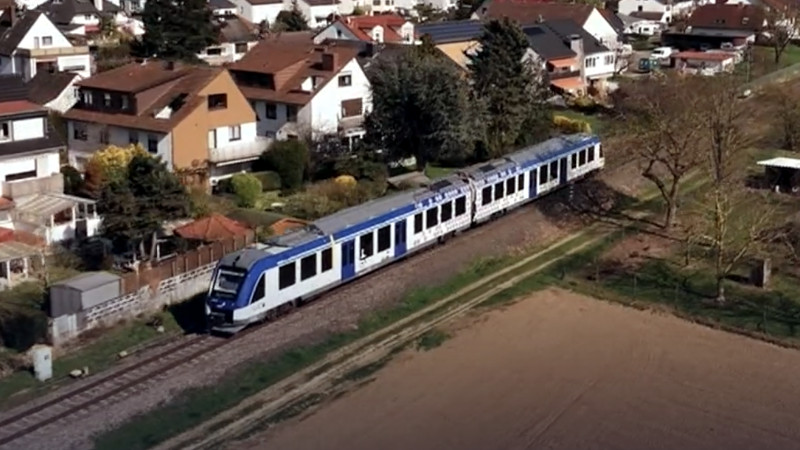Building Lasting Communities in Business with Matt Mullenweg

The podcast "HBR On Strategy" offers invaluable insights into effective business practices, featuring top experts in the field. New episodes are released weekly, each designed to unlock innovative strategies for navigating the complexities of modern business.
In the latest episode, the focus is on the concept of 'community'a term that is frequently mentioned in the business arena. However, what does it truly mean to build a community, and what are the essential elements required to ensure its longevity? More critically, how can businesses establish communities that contribute to sustained success over time? To explore these questions, the podcast welcomes Matt Mullenweg, a visionary in the tech industry, known for co-founding WordPress and serving as the CEO of Automattic, the parent company of WordPress.
During the discussion, hosted by Sarah Green Carmichael, Mullenweg shares his extensive knowledge on cultivating a thriving community within a company. He emphasizes unique hiring techniques, such as auditioning potential employees to assess their fit for the company's culture, rather than relying solely on traditional resumes. This approach extends to customer interactions as well, where fostering engagement and soliciting feedback becomes paramount to community building.
Mullenweg articulates his philosophy succinctly: for him, community is foundationalit represents both the beginning and the end of what makes a business successful. He states, Everything that has been successful for WordPress and everything for Automattic has really been part of thinking about whats the best long-term answer for the wider audience. He believes that prioritizing the interests of customers and contributors ultimately serves the commercial interests of the company in the long run, even if it might result in lower profits in the short term. This forward-thinking approach may sometimes put pressure on investors, but Mullenweg remains steadfast in his belief that it fosters healthier business practices.
As the conversation unfolds, Carmichael draws attention to the rapid growth of WordPress's user base as well as the company's employee roster. Mullenweg acknowledges this trajectory and underscores his commitment to expanding both dimensions while ensuring that the company's culture remains intact. He explains, It's about the rate of growth. If you look around the room, how many people have been with us for over a year versus those who are newer? The example set by long-term employees plays a crucial role in maintaining our culture.
He goes on to explain that company culture is shaped by myriad small decisions made daily, rather than superficial perks like office ping-pong tables. The key is leadership behavior; for instance, if a CEO neglects to pick up a piece of trash in the office, it sets a precedent for others to follow suit. This principle extends to Automattic's unique approach to remote work, where employees are dispersed globally rather than confined to a centralized office. Mullenweg shares that the company's designers participate in a practice they call trash pick-up day, where they identify and rectify small UI/UX issues across productsa symbolic gesture that emphasizes attention to detail and community responsibility.
As the dialogue progresses, they delve into the innovative hiring practices at Automattic, where prospective employees are evaluated through auditions rather than traditional resumes. Mullenweg affirms the effectiveness of this method, citing that the company has grown from fewer than 200 employees to 390 while still maintaining its core cultural values. He remains committed to this auditioning process, as it allows for a holistic assessment of candidates' skills and cultural fit.
The conversation also touches on the challenges many companies face when attempting to create communities around their products. Mullenweg compares this endeavor to hosting a dinner party without providing food or drinks, questioning why attendees arent enjoying themselves. He emphasizes the importance of providing value upfront, drawing parallels to WordPress's free software model, which encourages users to engage and contribute back to the community.
Mullenweg further explains the concept of the freemium model that WordPress employs, where a significant number of users can access basic features free of charge, while a smaller percentage subscribe to premium offerings. He shares insights into the economics of running such a model, illustrating how it benefits businesses by increasing user engagement and fostering loyalty. However, he cautions that the balance of free and paid offerings must be carefully managed to ensure the premium products remain compelling.
As the episode wraps up, Carmichael and Mullenweg reflect on the future of technology and its influence on daily life. Mullenweg describes exciting developments in connected devices that allow for seamless interaction with the environment. He introduces the concept of 'ambient technology'devices that integrate into our lives, enhancing rather than overwhelming our experiences. This technology shift invites exploration of new creative possibilities while aiming to make life simpler and more enjoyable.
Listeners leave with a wealth of knowledge about community building, the significance of company culture, and the evolving landscape of technology. As this episode of "HBR On Strategy" concludes, audiences are encouraged to share the insights with peers and to tune in for future conversations that promise to further enrich their understanding of effective business strategies.
Produced by Hannah Bates and Mary Dooe, this episode is a testament to the valuable discussions that can emerge from the intersection of technology and community.

















